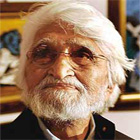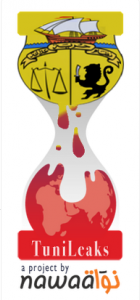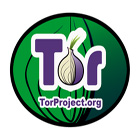This year’s ceremony on 24 March 2011 will be hosted by broadcaster Jonathan Dimbleby at the Royal Institution in London, with a keynote speech by Booker Prize-winning novelist Howard Jacobson.
Here are 2011 nominees in each category:
The Bindmans award for Law and Campaigning
Awards judge Gugulethu Moyo says that this year’s shortlist demonstrates clearly that tools to silence are used by both dictatorships and democracies – and that those committed to making sure unheard voices are listened to often do so at great personal risk.
“This year we turn our attention to Pakistan, where those working to change an incredibly hostile climate for free speech have found themselves under fierce attack. In China, those defending campaigners against land redistribution or promoting religious freedom meet with heavy penalties and often risk their lives. And we look at the United States, where the government’s preoccupation with national security has overridden one of its citizen’s human rights”, says Moyo.
According to him, It’s more important than ever to honour those who take on this difficult and complex work.
David Coombs David Coombs is the criminal defence lawyer leading the defence of Specialist Bradley Manning, the 23-year-old US army intelligence analyst accused of leaking classified material to WikiLeaks. Manning faces a court martial and up to 52 years in prison.
David Coombs is the criminal defence lawyer leading the defence of Specialist Bradley Manning, the 23-year-old US army intelligence analyst accused of leaking classified material to WikiLeaks. Manning faces a court martial and up to 52 years in prison.
Despite Coombs’s complaints, Manning has been held in solitary confinement in a military brig on a Prevention of Injury (POI) order since July 2010. This order, usually used for short periods prior to a psychological evaluation, limits his social contact, news consumption, ability to exercise and sleep. Coombs has used his blog to detail Manning’s experiences in solitary confinement.
Coombs called an assertion by a Pentagon Press Secretary that Manning is being treated like every other detainee at the Quantico brig “patently false”. His work has been pivotal in making Manning’s ordeal public.
Gao Zhisheng Chinese lawyer Gao Zhisheng has been persecuted by the state for speaking out on human rights issues. Gao, a self-taught lawyer, forged a career representing the underdog in cases involving medical malpractice, land redistribution, employment disputes and forced sterilisation.
Chinese lawyer Gao Zhisheng has been persecuted by the state for speaking out on human rights issues. Gao, a self-taught lawyer, forged a career representing the underdog in cases involving medical malpractice, land redistribution, employment disputes and forced sterilisation.
He has also defended journalists and religious minorities including Christians and members of Falun Gong. In 2005, he resigned from the Communist Party and wrote an open letter to President Hu Jintao and Prime Minister Wen Jiabao, documenting the suffering of Falun Gong practitioners and calling on the leaders to end their “large-scale, organised” abuse.
Security forces took Gao from his home in Shaanxi province on 4 February 2009. Gao claimed the security forces tortured him. The state denied any knowledge of his whereabouts until January 2010, when a foreign ministry official said the lawyer was “where he should be”. Gao disappeared again in April 2010, and the Chinese state has refused to register him as a missing person.
Sherry Rehman Sherry Rehman is a member of Pakistan’s parliament and chair of the Jinnah Institute, a think tank committed to “policies that promote fundamental rights, tolerance and pluralism”. For ten years Rehman served as editor-in-chief of the Herald, and from 1988 to 1998 she served as a member of the Council of Pakistan Newspaper Editors.
Sherry Rehman is a member of Pakistan’s parliament and chair of the Jinnah Institute, a think tank committed to “policies that promote fundamental rights, tolerance and pluralism”. For ten years Rehman served as editor-in-chief of the Herald, and from 1988 to 1998 she served as a member of the Council of Pakistan Newspaper Editors.
In November 2010, Rehman submitted a bill proposing amendments to Pakistan’s blasphemy law, which is routinely used to silence dissent and as a tool of intimidation against non-Muslims and members of minority Muslim sects.
Rehman and her late PPP colleague Salman Taseer were vocal critics of Pakistan’s blasphemy law. They were vociferous in their support of Aasia Bibi, a Christian woman sentenced to death after Muslim neighbours claimed she had blasphemed against Islam following an argument. After the assassination of Taseer by his bodyguard, Rehman was forced to withdraw her bill in February 2011.
The Guardian Journalism award
Awards judge Lindsey Hilsum introduces the nominees for the Journalism award.
“In the era of new media, some might think traditional journalism is yesterday’s story, but this year’s entries prove that’s not so. Today’s facebookers and tweeters are building on the bravery and dedicated investigative skills of old-school journalists, many of whom still face persecution. I’m struck by how those on this year’s shortlist don’t give up, whatever the forces brought to bear against them. When their publication is closed down, they start a new one. When released from prison, they start reporting where they left off. They are an inspiration”, emphasizes Hilsum.
Chiranuch Premchaiporn Chiranuch Premchaiporn is the executive director and co-founder of the Thai online news site Prachatai (“Thai people”). She is also a founding member of Thai Netizen Network (TNN), a group of media activists, internet users, bloggers and IT academics who monitor violations of freedom of expression on the internet.
Chiranuch Premchaiporn is the executive director and co-founder of the Thai online news site Prachatai (“Thai people”). She is also a founding member of Thai Netizen Network (TNN), a group of media activists, internet users, bloggers and IT academics who monitor violations of freedom of expression on the internet.
She is currently on trial, facing up to 50 years in jail, for comments posted on Prachatai that were critical of the monarchy. The comments were posted by a user; Chiranuch removed the comments after she was contacted by officials from the Ministry of Information. She is being prosecuted under both the Computer Crimes Act of 2007 and lèse majesté legislation, which makes criticism of the king an offence. The case is seen as part of a crackdown on the media in Thailand, targeting satellite television news stations, community radio stations, print publications and websites aligned with anti-government advocates. The trial resumes in the autumn.
Ibrahim Eissa Ibrahim Eissa is Egypt’s leading independent editor, described as a “one-man barometer of Egypt’s struggle for political and civic freedom”. Throughout his career, he has faced prosecution when his push for media freedom has fallen foul of the government. In 2010, he was fired from his position as editor of the independent newspaper al Dostour, after new owners bought the paper; his popular satellite talk show was also taken off air. His sacking came in the midst of a wider media crackdown in the run-up to the parliamentary elections, when Mubarak’s ruling National Democratic Party emerged victorious amid accusations of unprecedented vote rigging.
Ibrahim Eissa is Egypt’s leading independent editor, described as a “one-man barometer of Egypt’s struggle for political and civic freedom”. Throughout his career, he has faced prosecution when his push for media freedom has fallen foul of the government. In 2010, he was fired from his position as editor of the independent newspaper al Dostour, after new owners bought the paper; his popular satellite talk show was also taken off air. His sacking came in the midst of a wider media crackdown in the run-up to the parliamentary elections, when Mubarak’s ruling National Democratic Party emerged victorious amid accusations of unprecedented vote rigging.
When Eissa was sacked from his job last year, the novelist Alaa al Aswany wrote: “Ibrahim Eissa did not oppose the government; he opposed the system … He called for real democratic change through free and fair elections and regular change at the top.
The Intelligent Life Arts award
Awards judge Hans-Ulrich Obrist says, that in the field of the arts, liberty of expression is very often taken for granted. However, one should not forget that some artists struggle to express themselves in a lot of places around the world.
Gurpreet Kaur Bhatti
Gurpreet Kaur Bhatti is a British Sikh playwright and television and radio scriptwriter. Her 2004 award-winning play Behzti (“Dishonour”) met with controversy after its depiction of sexual abuse in a Sikh temple (Gurdwara) caused offence to some members of the local Sikh community. Protests outside the Birmingham Repertory Theatre, where the play was to be performed, turned violent and the theatre cancelled the run. Following death threats, Bhatti went into hiding and was given police protection.
Behud (“Beyond belief”) a sharp satire of censorship in modern-day Britain, is Bhatti’s artistic response to the Behzti affair; it was staged in 2010, at the Belgrade Theatre, Coventry and Soho Theatre, London. The play strikes at the tension between freedom of expression and faith groups’ assertion of the right not to be offended. It is testimony to Bhatti’s commitment to confront hypocrisy and fight for her right to freedom of expression in the face of hostility and potential risk to her personal safety.
Jafar Panahi Iranian director Jafar Panahi has received international recognition for his films, which include The Circle, White Balloon — winner of a Camera d’Or at Cannes in 1995 — and the award-winning Offside, the story of a young female football fan.
Iranian director Jafar Panahi has received international recognition for his films, which include The Circle, White Balloon — winner of a Camera d’Or at Cannes in 1995 — and the award-winning Offside, the story of a young female football fan.
In July 2009, Panahi was detained briefly after he joined mourners at the grave of Neda Soltan, the young protester who became an icon of the country’s “Green Revolution” when she was shot dead. He was arrested again in March 2010 and taken from his home to Tehran’s Evin prison. The international film community rallied, with numerous petitions and letters sent to the Iranian authorities demanding his release. He was released on bail in May. Last December he was found guilty of colluding against the Islamic republic and sentenced to six years in prison. He has been banned from travelling for 20 years and from making films for the same period.
MF Husain Celebrated and critically-acclaimed Indian artist Maqbool Fida (MF) Husain has been battling against censorship in his native India and elsewhere for close to 20 years. Born in 1915, he is recognised as one of India’s greatest living artists. He has lived in exile since 2006.
Celebrated and critically-acclaimed Indian artist Maqbool Fida (MF) Husain has been battling against censorship in his native India and elsewhere for close to 20 years. Born in 1915, he is recognised as one of India’s greatest living artists. He has lived in exile since 2006.
Husain’s work has caused controversy in sections of the conservative Hindu community, who regard his depiction of Hindu gods and goddesses in the nude as blasphemous and offensive. Husain has received numerous threats and exhibitions of his work have come under attack on several occasions; in India, he has faced hundreds of legal actions relating to his work.
In January 2011, three of Husain’s artworks were removed from the Indian Art Summit in New Delhi following threats. Organisers said they could not guarantee the safety of the artwork or of those visiting the exhibition.
The New Media award, supported by Google
According to awards judge David Rowan, In a year when WikiLeaks held government activities to unprecedented scrutiny, and Facebook and Twitter empowered citizens in articulating their concerns, the judges sought to honour those especially courageous internet activists who braved hostile conditions to promote free expression.
TuniLeaks by Nawaat TuniLeaks is a selection of the WikiLeaks State Department cables published by Nawaat.org, an independent group blog run by Tunisian net activists.
TuniLeaks is a selection of the WikiLeaks State Department cables published by Nawaat.org, an independent group blog run by Tunisian net activists.
TuniLeaks, like its parent site Nawaat, is entirely independent and does not receive funds from any political party.
The TuniLeaks cables revealed the extent of the corruption deeply entrenched in many aspects of Tunisian life. Despite attempts to block the site, news of the cables being released swiftly spread around the country and Nawaat helped informal media networks link communities that had been cut off by government censors.
Nawaat highlights how important transparency is in a country like Tunisia, where citizens had for so many years been cut off from vital information and dialogue. “The aim is to get everyone to read, to get an idea and give meaning to the facts provided,” the website states. “The debate is open.”
The Tor Project Tor enables whistleblowers, dissidents and activists to communicate safely.
Tor enables whistleblowers, dissidents and activists to communicate safely.
It began as The Onion Router project in 2002, originally sponsored by the US Naval Research Laboratory. Among its founders are Roger Dingledine, Nick Mathewson and Paul Syverson.
Designed to increase privacy and security, internet users are able to access censored sites via a third party and conceal their browsing history. Communications via instant messaging are similarly protected. The Tor system is continuously updated and developed in order to address the vulnerability inherent within web-based systems. The software “does not modify, or even know, what you are sending into it”, the Tor site states. “It merely relays your traffic, completely encrypted through the Tor network and has it pop out somewhere else in the world, completely intact.”
The use of Tor technology in Egypt increased fourfold in the weeks leading up to the overthrow of Hosni Mubarak, and a similar pattern was seen in Tunisia.
Wen Yunchao Wen Yunchao is a Guangdong-based internet activist. Writing for platforms including the now banned bullog.cn, Wen established himself as one of China’s best-known bloggers under the alias Bei Feng. He started his career as a news reporter before becoming the editor of Guangzhou’s Yangcheng Evening News website. In 2009, Wen left to research internet censorship. He has spoken about his work as a censor and member of the “50 cent” group (state-funded commenters paid 50 cents for every pro-government comment).
Wen Yunchao is a Guangdong-based internet activist. Writing for platforms including the now banned bullog.cn, Wen established himself as one of China’s best-known bloggers under the alias Bei Feng. He started his career as a news reporter before becoming the editor of Guangzhou’s Yangcheng Evening News website. In 2009, Wen left to research internet censorship. He has spoken about his work as a censor and member of the “50 cent” group (state-funded commenters paid 50 cents for every pro-government comment).
Wen now works to remove restrictions on information and champions freedom of speech. When Southern Weekly editor Chang Ping was fired in early 2011, Wen Yunchao helped spread the word, organising netizens to donate to Chang Ping’s account to show their support. He also organised Twitter’s “empty chairs” event to mark Liu Xiaobo winning the Nobel Peace Prize.
Wen was among the second group of signatories of Charter 08, the manifesto signed by more than 350 Chinese intellectuals and human rights activists.
Related articles:
Iranian film director sentenced to 6 years in prison and banned from making films for 20 years





